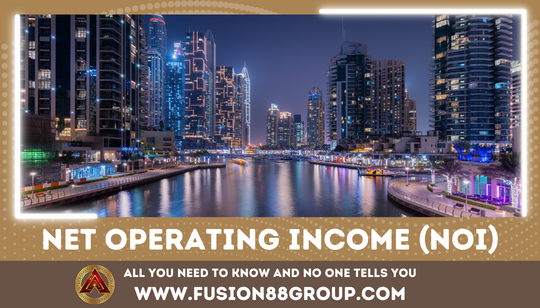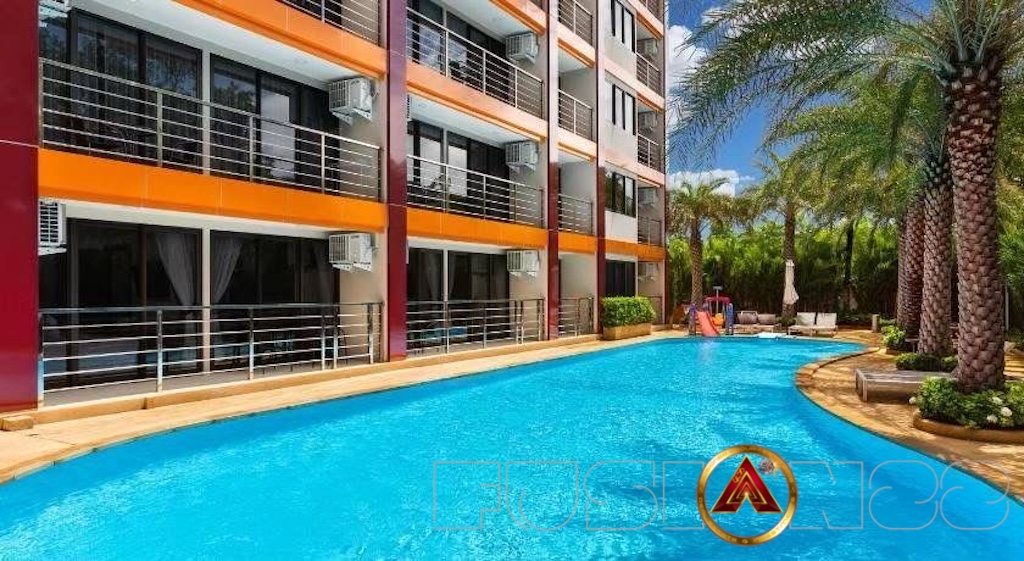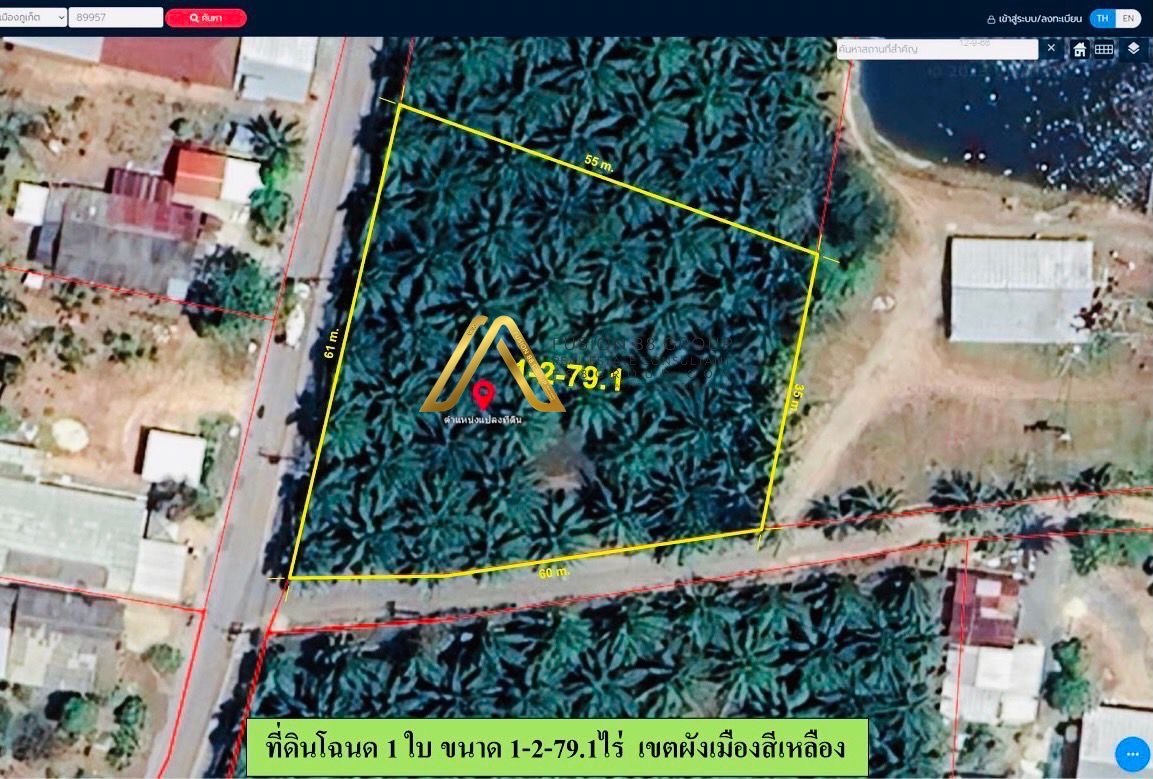
Net operating income (NOI) is a financial calculation to evaluate the profitability of your real estate investments that generate income. This figure, positioned before taxation, is reflected in a property’s income and cash flow statement. We aim to explain how to calculate net operating income to know your investment profits. Combined with our comprehensive insights into net operating income, definition and formula, in the ensuing section.
What is Net Operating Income (NOI)
Net operating income (NOI) is achieved by deducting all operational expenses from your property’s income. It’s not only the rent that is covered but also additional charges such as parking fees and other revenue-generating sources of your real estate investments. The expenses include insurance, legal fees, utilities, property taxes, maintenance and cleaning. Importantly, net operating income doesn’t count things like paying loans, interest, spending on big items, or some financial concepts. In other areas, this idea is named “EBIT” (Earnings Before Interest and Taxes), proving its handy for more than just real estate. Additionally, NOI calculates vital figures such as your earned profit, cash return from investment and the anticipated total return.
Profits Generated by Property
To illustrate, let’s consider you are the owner of a condo in Thailand. The profits generated by your condo asset calculates a range of income streams, including:
- Rental Income: Monthly rent is collected from tenants.
- Parking Fees: Revenue earned from parking spaces provided to your renters.
- Laundry Facilities: Income generated from coin-operated laundry facilities.
Operating Expenses for Property
On the other side of the equation, operating expenses constitute the necessary costs incurred in running and maintaining the property’s operations. A comprehensive list might include:
- Property Management Fees: Compensation for managing and overseeing the property.
- Utilities: Expenditures for electricity, water, gas, and other essential services.
- Maintenance and Repairs: Funds allocated for regular upkeep and unexpected repairs.
- Property Taxes: The property’s annual tax payment to local authorities.
- Premium Insurance: Coverage against potential risks and liabilities.
- Landscaping and Groundskeeping: Costs for maintaining the property’s exterior appearance.
- Advertising and Marketing: Expenses for promoting the property and attracting tenants.
How to use Net Operating Formula
Understanding its foundational formula, Net Operating Income Formula is critical to calculating how to use net operating income (NOI).
The Net Operating Income Formula reads as

Net Operating Income Formula = Total Real Estate Revenue – Operating Expenses
“Total Real Estate Revenue” includes all income sources, encompassing rent and passive earnings like parking fees. Conversely, “Total Operating Expenses” cover operational costs such as maintenance, utilities, and property taxes. Notably, significant capital expenses are excluded.
How to Calculate Net Operating Income
Calculating the net operating income formula is crucial in real estate investing. To understand this, you need to know about “gross profits” and “net profits.” Both are key concepts that form the basis of NOI understanding.
- Gross Profits: A property’s overall income before accounting for any costs or deductions.
- Net Profits: This is the income after subtracting all the operational expenses from the total revenue. It gives a clearer picture of how profitable the property is. If you’re looking to delve into further investment analysis, you might find our article on cash-on-cash calculations helpful.

Net operating income (NOI) stands apart from gross operating revenue in real estate, as it indicates the total potential income from a property, factoring in vacancy-related income loss. Derived from gross operating income, NOI results from subtracting operational expenses. This measurement is useful for figuring out how much money you could make from an investment property. However, it doesn’t include considering possible costs like income taxes and paying off your mortgage over time.
1. For example, a villa at Kata Top View in Karon Beach (Phuket) has 3 bedrooms and a monthly rent price starting at 60,000 baht. To calculate your real estate investment with the net operating income formula is shown below:
-
- Rental Income: 60,000 baht per month (or 720,000 baht per year)
- Other Income: For this example, let’s assume an additional income of 10,000 baht per year from amenities like parking or any other sources.
- Operating Expenses: Let’s assume some basic operating expenses as follows:
- Property Management Fees: 15,000 baht per year
- Insurance Premiums: 5,000 baht per year
- Property Taxes: 8,000 baht per year
- Utilities: 12,000 baht per year
- Repairs and Maintenance: 20,000 baht per year
- Miscellaneous Expenses: 5,000 baht per year
Now, let’s plug in these values into the Net Operating Income formula:

2. Let’s work through another example for a villa at Location in Hua Hin with 3 bedrooms and a monthly rental price of 52,000 baht.
-
- Rental Income: 52,000 baht per month (or 624,000 baht per year)
- Other Income: For this example, let’s assume no additional sources of income other than the rental income.
- Operating Expenses: Let’s continue with the same basic operating expenses assumption as before:
- Property Management Fees: 15,000 baht per year
- Insurance Premiums: 5,000 baht per year
- Property Taxes: 8,000 baht per year
- Utilities: 12,000 baht per year
- Repairs and Maintenance: 20,000 baht per year
- Miscellaneous Expenses: 5,000 baht per year
Now, let’s plug these values into the Net Operating Income formula:

What is Gross Operating Income
In the real estate industry, gross profit is the remaining profit within a specific time frame after subtracting the cost of goods sold (COGS) from the total profit. This applies whether the business involves tangible property sales or service provision. For service-oriented real estate investments, the expenses related to those services are subtracted, similar to costs in manufacturing or procuring goods. To ensure accuracy, it’s crucial to carefully identify the profits that should contribute to your gross profit calculation. Only proceeds from property sales and related services should be considered. Profits from non-operational activities, like selling properties no longer integral to the business, should not be included in the gross profit computation.
What is Included in Gross Operating Income?
Gross operating income calculates all revenue streams that your property generates. The gross active income does not only include rent but also additional income sources such as fees for amenities, parking charges, and other related sources. Gross operating income shows the full revenue from the property’s operations before factoring in the costs of running and maintaining it.
The Gross Operating Income (GOI) formula is:

The Formula Components Explained
- Rental Income: Income generated from tenants’ rent payments.
- Other Income: Additional sources of revenue, such as fees from amenities, parking charges, and any other related income streams.
What are Operating Expenses?
Operating expenses in real estate have different costs that come up every day in taking care of your property. These costs are important parts of owning and managing a property and affect how well the property does financially.
Types of Operating Expenses in Real Estate
Operating expenses encompass a diverse range of costs that are indispensable for a property’s effective functioning and upkeep. These may include but are not limited to
- Maintenance and Repairs: Regular upkeep, repairs, and necessary renovations to ensure the property’s optimal condition falls under this category.
- Utilities: Costs associated with essential services like water, electricity, gas, and waste removal are considered part of the operating expenses.
- Property Management Fees: Encompass the costs associated with employing professional property management services. This covers a range of tasks such as administrative responsibilities, tenant interactions, and overseeing property maintenance.
- Insurance Premiums: The payments for insurance coverage, which safeguards the property against potential risks and liabilities.
- Property Taxes: Taxes levied by local authorities on the property’s value, which contribute to the community’s infrastructure and services.
- Cleaning Services: Costs related to maintaining cleanliness and hygiene within the property’s premises.
- Landscaping and Groundskeeping: Expenditures incurred for maintaining lawns, gardens, outdoor areas, and overall landscape aesthetics.
- Security: Expenses linked to security measures and systems, such as surveillance cameras, alarm systems, and security personnel.
- Administrative Costs: Administrative expenses like accounting, legal fees, and property management software costs.
Explaining Select Operating Expenses
Operating expenses include a range of essential costs such as services like water, electricity, and waste removal are considered utilities. Property management fees take care of professional oversight and tenant interactions. Insurance premiums protect against risks, while property taxes support community services. Cleaning services ensure cleanliness, landscaping maintains outdoor spaces and security expenses guarantee safety.
Net Operating Income Pros and Cons
Net Operating Income Pros and Cons
| Pros | Cons |
| Provides Accurate Valuation: NOI offers a precise metric for valuing income-generating properties. | Limited for Investment Comparison: While NOI is crucial for a single property’s evaluation, it may not provide a direct basis for comparing multiple properties. |
| Reflects Operational Efficiency: NOI factors in operational costs, revealing how efficiently a property is managed. | Excludes Financing Costs: The formula excludes financing-related expenses, potentially impacting the assessment of overall profitability. |
| Useful for Investment Decision: Enables investors to assess potential returns and make informed investment choices. Ignores Property Financing: Financing terms can significantly affect the property’s financial health. | Ignore Property Financing: Financing terms can significantly affect the property’s financial health, and NOI does not account for this aspect. |
| Assists in Rental Pricing: NOI helps determine optimal rental pricing to achieve desired profitability. | Ignore Tax Impact: Property tax variations aren’t directly factored into the NOI formula. |
| Simplified Calculation: Calculating NOI is straightforward, using income and operating expense figures. | Ignores Market Fluctuations: The formula does not account for external market forces that can impact property value. |
Frequently Asked Questions (FAQs)
Q: Is NOI the same as the Gross Profits calculation?
A: No, Net Operating Income (NOI) and Gross Profits calculation are separate ideas. NOI shows the total revenue a property generates after deducting operating expenses, giving insights into its financial performance. On the other hand, gross profit calculation involves subtracting the cost of goods sold (COGS) from total revenue, usually used in business to evaluate profitability.
Q: Is EBITA the same as NOI?
A: No, EBITA (Earnings Before Interest, Taxes, and Amortization) and NOI are not equivalent. EBITA measures a company’s operational earnings before considering interest, taxes, and amortization expenses. In contrast, NOI focuses solely on property-specific income and expenses, excluding financing costs and income taxes.
Q: What is a good NOI percentage or calculation?
A: The ideal Net Operating Income (NOI) percentage varies across different real estate sectors and markets. Generally, a higher NOI percentage indicates a property’s strong revenue-generating potential and efficient cost management. However, what constitutes a “good” percentage depends on factors like property type, location, market conditions, and investor goals.
Bottom Line: Conclusion
Knowing how much money you can make from a big property like a villa or house, especially for holidays or investments, is super important. When you figure out the Net Operating Income (NOI), you’re getting a good handle on the financial side of these major assets. This helps you decide on your property price, how to run things more efficiently, and how to plan your finances smartly. It’s like ensuring you get the best money results while dealing with all the complicated stuff that comes with these properties.








